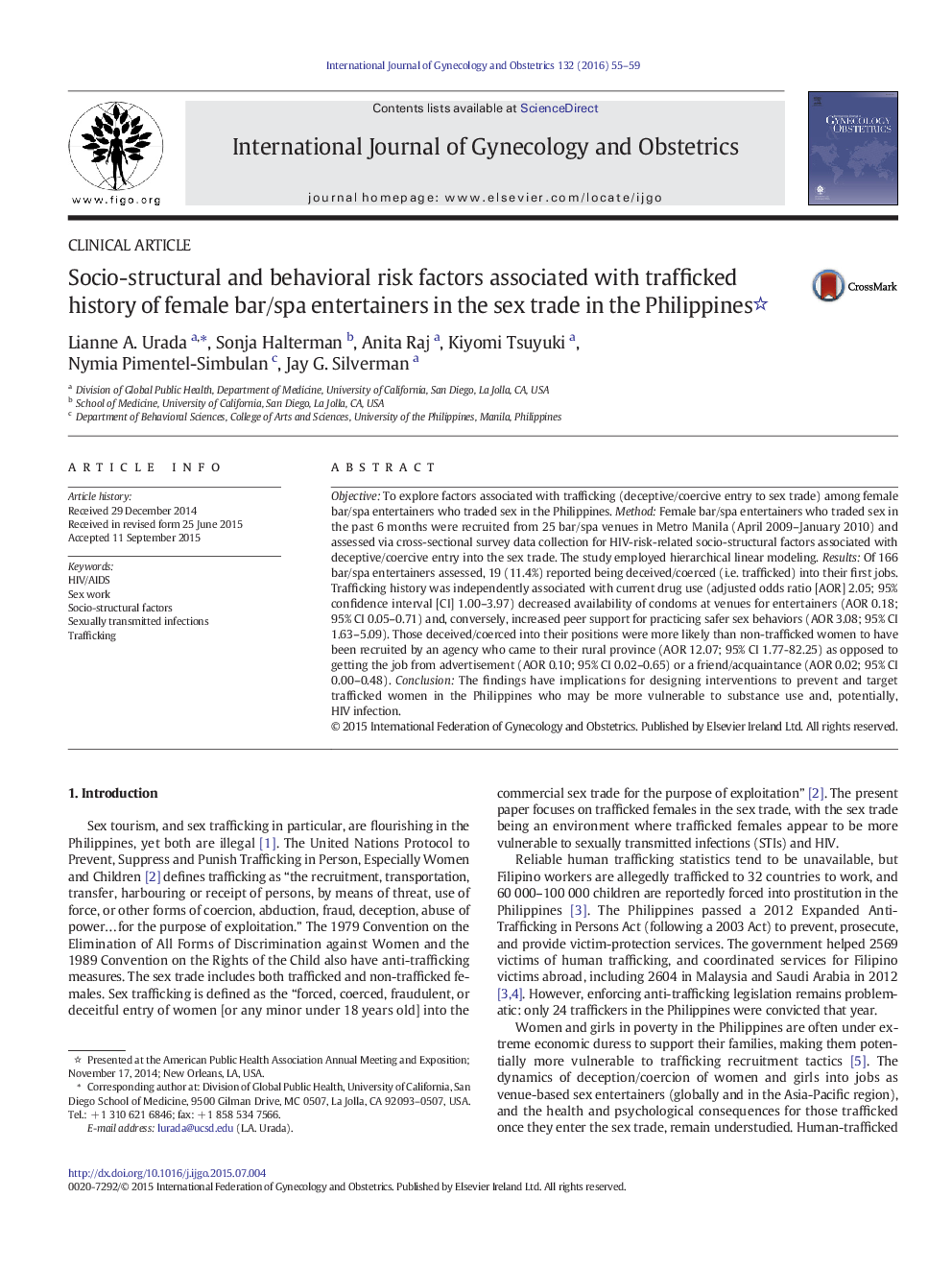| Article ID | Journal | Published Year | Pages | File Type |
|---|---|---|---|---|
| 3952265 | International Journal of Gynecology & Obstetrics | 2016 | 5 Pages |
ObjectiveTo explore factors associated with trafficking (deceptive/coercive entry to sex trade) among female bar/spa entertainers who traded sex in the Philippines.MethodFemale bar/spa entertainers who traded sex in the past 6 months were recruited from 25 bar/spa venues in Metro Manila (April 2009–January 2010) and assessed via cross-sectional survey data collection for HIV-risk-related socio-structural factors associated with deceptive/coercive entry into the sex trade. The study employed hierarchical linear modeling.ResultsOf 166 bar/spa entertainers assessed, 19 (11.4%) reported being deceived/coerced (i.e. trafficked) into their first jobs. Trafficking history was independently associated with current drug use (adjusted odds ratio [AOR] 2.05; 95% confidence interval [CI] 1.00–3.97) decreased availability of condoms at venues for entertainers (AOR 0.18; 95% CI 0.05–0.71) and, conversely, increased peer support for practicing safer sex behaviors (AOR 3.08; 95% CI 1.63–5.09). Those deceived/coerced into their positions were more likely than non-trafficked women to have been recruited by an agency who came to their rural province (AOR 12.07; 95% CI 1.77-82.25) as opposed to getting the job from advertisement (AOR 0.10; 95% CI 0.02–0.65) or a friend/acquaintance (AOR 0.02; 95% CI 0.00–0.48).ConclusionThe findings have implications for designing interventions to prevent and target trafficked women in the Philippines who may be more vulnerable to substance use and, potentially, HIV infection.
